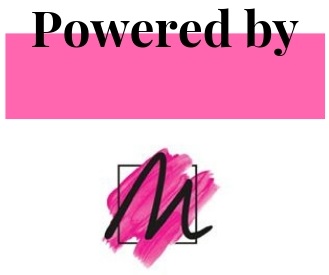
It’s not just for teens.
If you thought that, as an adult, breakouts, and blemishes were forever in your past, well then you were wrong. Adult acne is real. Know how we know? Anecdotal data suggesting that every now and then we all get a little red visitor in the middle of our brow. (Hey, at least no one has yearbook photos tomorrow.)
It could be something you ate. Or a freaky new skincare product you learned about on a Korean YouTube channel. Or maybe you’re just stressed because you don’t have enough subscribers on your own YouTube channel.
There are a whole variety of causes for adult acne. That’s what I learned when I called up an expert for some 101 advice on getting rid of what is ostensibly a teenage blemish.
My expert? Dr Lawrence Green, MD, Associate Clinical Professor of Dermatology at George Washington University School of Medicine. Here’s what Dr Green had to say about the root cause of adult acne, and how to fight back.
What causes adult acne?
Dr Green says that numerous things cause acne at any time, but recurring cases often point to the same thing:
Hormones: “Male hormone levels fluctuate in the body,” says Green, noting that men and women both experience shifts in their testosterone levels. “They usually peak during adolescence, but they continue to fluctuate as adults.”
He adds that this is particularly common for women when they ovulate. “The pore is sensitive to these male hormone levels and is activated to secrete oil when the levels elevate,” he says.
Hormone volume and pore sensitivity are genetically determined, and both play a factor in whether or not clogging occurs. However, other materials in the pore, like dead skin cells and grime, can get clogged in there at the same time.
A specific bacteria often gets trapped, too: “P Acnes,” which Green says lives in everyone’s pores in small amounts, but “start proliferating rapidly when a clog develops.
Then our body senses this bacterial increase and mounts an immune response to it. That is the process of acne development. The immune system reaction to P Acne proliferation is seen as red bumps and pustules.”
What kinds of products can reduce persistent adult acne?
Dr. Green tells his acne-prone patients to use products that help open up the pores and reduce immune system inflammation occurring around and inside clogged pores.
“Dermatologists commonly prescribe retinoid type medications to unclog and loosen pores, and antibiotics and/or anti-inflammatory medications to lessen all the redness that occurs,” he says.
For non-prescription pore uncloggers, Dr. Green says to look for products containing salicylic acid. (He and I can both recommend Kamedis Clear Face Cream.)
For non-prescription topical medications, he says that creams with benzoyl peroxide (like La Roche-Posay’s Effaclar Duo Acne Treatment) will reduce inflammation. Be cautious here—benzoyl peroxide is the stuff that stains your towels and pillowcases.
“All of these are best used all over the face, not just on individual spots of acne, in order to treat existing and prevent future acne from occurring,” he says. “And salicylic acid products used directly as a spot treatment on red spots can actually worsen the acne by irritating it.
Although a cleanser containing any of the above ingredients is fine, I personally prefer creams or lotions that are rubbed into the skin. Cleansers are quickly washed off the skin, and that doesn’t give their active ingredients enough time to work. In contrast, creams and lotions are rubbed into the skin, meaning their ingredients can continue to work all day.’
What’s the best hygiene routine to prevent adult acne?
“Hygiene really shouldn’t influence acne,” Dr. Green says. Remember, it’s largely genetics and hormones. “However, if you don’t wash your face regularly and remove oils and dead skin that can build up there, then acne can build up on your pores.” (In other words, cleanse and exfoliate regularly!)
“And, while retinoids do not reduce scarring themselves, regular use can help lighten darker marks caused by acne, to an extent.” So ask your dermo for a prescription, if you’re curious to try it.
How does diet affect adult acne?
“Similar to hygiene, what you put in your stomach does not really influence your skin, since there is no direct connection between the two areas,” Dr Green says. “However, there is some research that says people who eat very high carb diets can sometimes get more acne.
The theory is that we need insulin to break down carbs, and if you eat a lot of them and essentially nothing else you will get higher levels of insulin in your body. Insulin also causes an increase in male hormones. And from there the acne process can be increased.”
What about daily habits? How can they be adjusted to reduce acne?
“In general, a healthy lifestyle should always help your body, and that includes acne,” Dr. Green says of getting plenty of sleep and exercise.
“Anything that stresses the body can cause stress hormones to be elevated, and that in turn can lead to an elevation in male hormones… and then to acne.”
[Via GQ]





